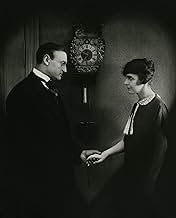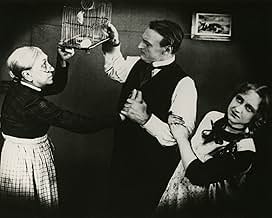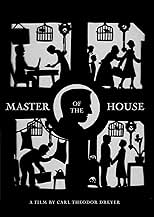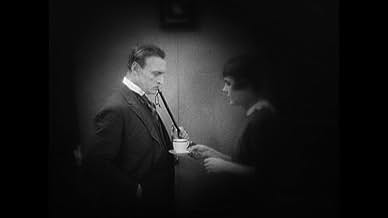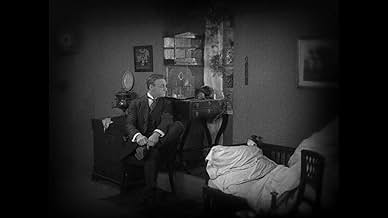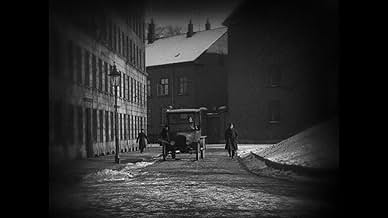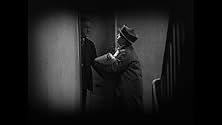NOTE IMDb
7,0/10
2,5 k
MA NOTE
Ajouter une intrigue dans votre langueWhen a man becomes tyrannical towards his family, the women of the house decide to teach him a lesson in gratitude.When a man becomes tyrannical towards his family, the women of the house decide to teach him a lesson in gratitude.When a man becomes tyrannical towards his family, the women of the house decide to teach him a lesson in gratitude.
Histoire
Le saviez-vous
- AnecdotesAt its original release in Paris, France, this film played in 57 theaters in three weeks.
- Citations
Opening Title Card: In the numerous streets of the Big City, house follows house, and in those houses, people live in layers - like wild birds carving their nests into the rock... nest above nest...
- Versions alternativesA 107-minute version with English intertitles and an uncredited piano score was shown on the Turner Classic Movies (TCM) channel in 2006. It had no crew credits other than the director (as Carl Dreyer) and only three cast members: Johannes Meyer (as Johs Meyer), 'Astrid Holm' and Mathilde Nielsen. The English names used were John and Mary for the husband and wife, presumably to indicate a typical family, and "Nana" for the Wetnurse. The two older children were called Kathleen and Dick.
- ConnexionsEdited into Mathilde Nielsen - Kavalkade (1941)
Commentaire à la une
"We men are such fools!" proclaims former master of the house Viktor, and you can't help but feel a sliver of guilt as he silently utters those words. That's the timeless universality of film, I suppose: a Danish movie made over 80 years ago is still relevant today.
This was my first Dreyer, and it is quite a light offering considering the man's weighty reputation. It's a social drama with a patently feminist message delivered with a typically heavy hand (by today's standards). Johannes Meyer is Viktor, the decent man turned into a brute by the failure of his business who doesn't realise just how much he takes his long-suffering wife Ida (Astrid Holm) for granted. Fortunately for Ida, Viktor's curmudgeonly former nanny (Mathilde Neilsen), takes control of the situation by packing the frazzled Ida off to a sanatorium so that she can sort Viktor out.
The film drags for the first half-hour as the daily ritual of the Frandsen family is established. Let's face it, there's little of interest in watching people polishing shoes and preparing breakfast, but things get a little more interesting once Nanny takes charge. It's message is a bit too sweeping (although all us men are probably guilty to some degree) and a little too simplistic in its treatment and resolution, but there's plenty on the screen to demonstrate Dreyer's talent as a director - although some symbolism (caged birds, for example) must have been overused even by 1925. A decent enough film, worth watching despite its mundane setting.
This was my first Dreyer, and it is quite a light offering considering the man's weighty reputation. It's a social drama with a patently feminist message delivered with a typically heavy hand (by today's standards). Johannes Meyer is Viktor, the decent man turned into a brute by the failure of his business who doesn't realise just how much he takes his long-suffering wife Ida (Astrid Holm) for granted. Fortunately for Ida, Viktor's curmudgeonly former nanny (Mathilde Neilsen), takes control of the situation by packing the frazzled Ida off to a sanatorium so that she can sort Viktor out.
The film drags for the first half-hour as the daily ritual of the Frandsen family is established. Let's face it, there's little of interest in watching people polishing shoes and preparing breakfast, but things get a little more interesting once Nanny takes charge. It's message is a bit too sweeping (although all us men are probably guilty to some degree) and a little too simplistic in its treatment and resolution, but there's plenty on the screen to demonstrate Dreyer's talent as a director - although some symbolism (caged birds, for example) must have been overused even by 1925. A decent enough film, worth watching despite its mundane setting.
- JoeytheBrit
- 9 juil. 2009
- Permalien
Meilleurs choix
Connectez-vous pour évaluer et suivre la liste de favoris afin de recevoir des recommandations personnalisées
- How long is Master of the House?Alimenté par Alexa
Détails
- Date de sortie
- Pays d’origine
- Langue
- Aussi connu sous le nom de
- Master of the House
- Société de production
- Voir plus de crédits d'entreprise sur IMDbPro
- Durée1 heure 51 minutes
- Mixage
- Rapport de forme
- 1.33 : 1
Contribuer à cette page
Suggérer une modification ou ajouter du contenu manquant

Lacune principale
By what name was Le maître du logis (1925) officially released in India in English?
Répondre
